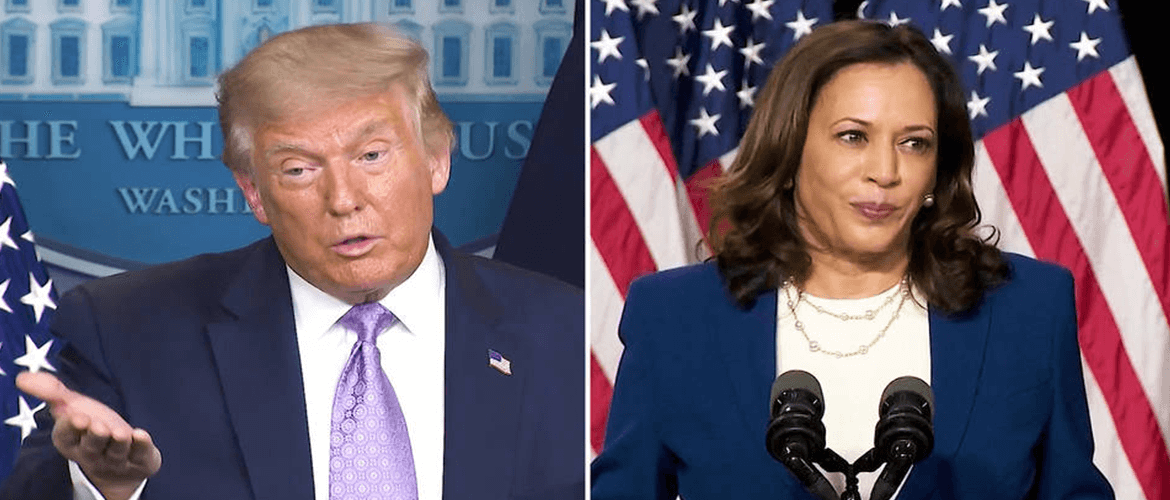Not-so-white House: Is America Ready for Kamala Harris?
September 7, 2020 | Expert Insights
August 11 marked an important date in the history of the U.S. presidential elections. Democratic presidential candidate Joe Biden chose California senator and former San Francisco District Attorney Kamala Harris as his vice-presidential running mate. Ms. Harris is the first Black woman and Indian American to be nominated for this position by a major party. She is also the third woman in U.S. history to be on a major party ticket, following Geraldine Ferraro in 1984 and Sarah Palin in 2008 apart from Hilary Clinton’s abortive attempt at the Whitehouse.
While her nomination has gained ecstatic support, especially amongst minorities, it has also been met with racism, scepticism, and misogyny. Additionally, prominent presidential contenders from last year, such as Tulsi Gabbard, have criticised Ms. Harris’s tough sentences for petty crimes committed by marginalised groups. The broad range of responses among voters – both within and outside the Democratic Party – call for an assessment of the candidate beyond the politics of race and gender. While Ms. Harris’s identity proves to be an important factor in her selection, there is a need for a closer examination of her political stance.
THE SELECTION
The buzz around her selection dates back to as early as March when Mr. Biden stated that he would pick a woman running mate. This echoed other presidential candidates such as Bernie Sanders, who had also vouched for a progressive woman VP. After the first wave of Black Lives Matter (BLM) protests in May, Mr. Biden faced further pressure to solidify his stance on racial inequality at home by picking a woman of colour. He vowed to counter President Donald Trump by ensuring a more representative leadership – especially in the light of doubts around his ability to remain in office for a second term since he would be the oldest president in U.S. history. If Mr. Biden chooses to step down in 2024, the VP will take the hot seat, thus underlining the need for a strong candidate.
Amongst experienced women contenders such as former National Security Advisor Susan Rice and Massachusetts senator Elizabeth Warren, Ms. Harris gained prominence due to her incisive questioning during the Senate confirmation hearings. While Democrats supported her fierce exchange with Republicans such as Jeff Sessions, she also faced negative comments from Mr. Trump, who called her “extraordinarily nasty”. This highlights the many challenges faced by Black women in politics, as they are often subjected to comments that enforce racist tropes dismissing them as “too loud” and “angry”.
It is a sad commentary on gender equality that only 57 women have served as senators since it was established in 1789. In this context, Ms. Harris’s selection becomes inextricably linked with identity politics.
WAY FORWARD
But that is only part of the narrative. Ms. Harris remained a strong contender during her stint with the Democratic primaries when she spoke out against issues of racism and reproductive rights. Although she eventually dropped out of the presidential race, she continued joining protests against police brutality and called for progressive reforms to support marginalised communities. Her announcement as Mr. Biden’s pick added to her track record of bringing in large donations, as the duo reported over $300 million funds collected in August. Finally, she has a close connection with Mr. Biden and his late son, Beau, making her a trustworthy companion to the presidential candidate.
However, her critics reveal her wavering stance on issues such as “Medicare for All,” and its potential toll on her ability to serve as a decisive leader. She is not unanimously favoured among progressive Democrats, who question her ability to take bold actions being perceived as relatively moderate. Her campaign does not guarantee an influx of Black votes, as many Black voters favoured candidates such as Mr. Biden, Mr. Sanders, and Ms. Warren over her in polls. This is due to her tough take on crimes committed by Black and Brown communities, earning her the title “the cop”, while she was the district attorney. Ironically, while Ms. Harris supports legalising marijuana, she contributed to the mass incarceration of poor communities with nonviolent drug-related crimes.
Ms. Harris’s past is likely to draw more attacks from Mr. Trump over the coming weeks. But she also has the potential to garner votes due to her combination of vigour and practicality to resolve issues. Her immigrant roots definitely influence her compassion towards underprivileged groups, evident through her ‘Back-on-Track’ programme to aid upward social mobility for first-time drug offenders. Unlike her more progressive counterparts like Ms. Warren, she is also likely to remain in sync with the relatively moderate Mr. Biden. Thus, while her nomination is a historic move for the representation of marginalised communities in the U.S., it is also paving the path to a promising leadership that can address systemic racism, wealth gap, reproductive rights, and gun control, amongst other issues.
Assessment
- In order to address polarisation within her party, Kamala Harris might have to make bolder, relatively progressive moves to maintain support from Black voters. She will face further scrutiny as the first woman of colour VP but could set the tone for more women of colour to enter leadership positions.
- Although Mr. Biden and Ms. Harris have clashed in past Democratic debates regarding issues of busing and desegregation, they have found common ground with their moderate views. But Ms. Harris’s shifting positions on issues such as Medicare for All raises questions regarding her ideological clarity.
- Ultimately, both candidates would face vitriol from Trump supporters and swing voters, evident by Mr. Trump’s debilitating comments and scepticism on Ms. Harris’s eligibility to get nominated due to her citizenship status.
Author: Synergia Foundation Research Team



Comments